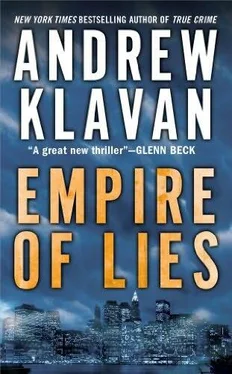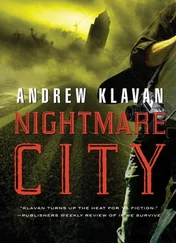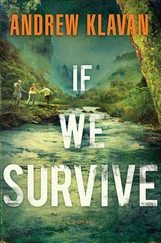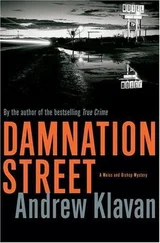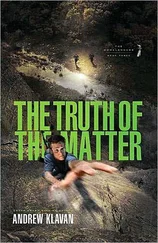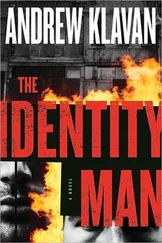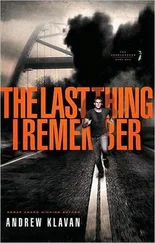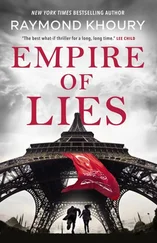Andrew Klavan - Empire of Lies
Здесь есть возможность читать онлайн «Andrew Klavan - Empire of Lies» весь текст электронной книги совершенно бесплатно (целиком полную версию без сокращений). В некоторых случаях можно слушать аудио, скачать через торрент в формате fb2 и присутствует краткое содержание. Жанр: Триллер, на английском языке. Описание произведения, (предисловие) а так же отзывы посетителей доступны на портале библиотеки ЛибКат.
- Название:Empire of Lies
- Автор:
- Жанр:
- Год:неизвестен
- ISBN:нет данных
- Рейтинг книги:5 / 5. Голосов: 1
-
Избранное:Добавить в избранное
- Отзывы:
-
Ваша оценка:
- 100
- 1
- 2
- 3
- 4
- 5
Empire of Lies: краткое содержание, описание и аннотация
Предлагаем к чтению аннотацию, описание, краткое содержание или предисловие (зависит от того, что написал сам автор книги «Empire of Lies»). Если вы не нашли необходимую информацию о книге — напишите в комментариях, мы постараемся отыскать её.
Empire of Lies — читать онлайн бесплатно полную книгу (весь текст) целиком
Ниже представлен текст книги, разбитый по страницам. Система сохранения места последней прочитанной страницы, позволяет с удобством читать онлайн бесплатно книгу «Empire of Lies», без необходимости каждый раз заново искать на чём Вы остановились. Поставьте закладку, и сможете в любой момент перейти на страницу, на которой закончили чтение.
Интервал:
Закладка:
"You'll have to ask the guys in New York. Like I said, I'm sure they'll bring us up to date."
I turned away from the backs of those two heads and looked out the window, up at the roiling, ominous clouds.
It was almost eleven as we crossed into Queens. There was plenty of traffic, but the cop car, being a cop car, cut through it quickly, keeping to the left lane while other cars ducked out of its path like saloon dwellers in a cowboy movie dodging out of the way of Black Bart. Since Fitzgerald wasn't saying much, I used the travel time to make some phone calls. I canceled my flight home. I checked in at the office. I called my wife. I got Cathy's voice mail, both at home and on the cell. I remembered today was her day to play lunch lady at our daughter's school so she had probably shut her phone off. To tell the truth, I was glad of it. I had no idea how I was going to explain to her what was happening here. I left a message:
"Listen. I'm all right, but I've run into a problem. I can't come home yet. I'm with the police. I'm fine, but some men broke into the house last night and took Serena. Don't be worried or anything, all right? I didn't get hurt and it's gonna be okay. I'll call you when I can."
As I pressed DISCONNECT, I caught Fitzgerald and the uniform exchange another glance across the front seat.
I managed to ignore that or to ignore the fact that it fed into my suspicion that something was wrong, that there was some catastrophe impending. And I managed to ignore it when the squad car left the expressway for the parkway, too, and when it crossed the bridge into uptown Manhattan and when it crossed Manhattan to the West Side. Up until then, I'd just assumed we were heading for police headquarters downtown.
"Where are we going?" I asked the back of Fitzgerald's head. "Are we going up to the university?"
"They're working this out of the twenty-sixth," he answered. Whatever the hell that was supposed to mean.
We passed along several streets of aging brownstones, and finally turned onto a street crowded with cop cars. The cars were parked in slanted spaces outside a cookie-cutter New York precinct house of concrete and yellow brick. Our driver slid his county squad car in with the others.
They were waiting for us inside. That much seemed clear. Fitzgerald only had to flash his Nassau County shield at the officer behind the reception desk and a locked door buzzed open. We passed through it into the precinct's inner halls.
A man met us in a cinder-block corridor. He was about forty, youthful-looking, black or half-black-with tan skin, anyway. He was short and trim, with a round, hard, handsome face, a serious face under clipped, serious black hair. He was in shirtsleeves, a buttoned-up white shirt with a blue tie, the pants of a charcoal suit. Everything about him seemed serious and efficient.
I didn't like him. To put it bluntly, he frightened me. The second I saw him, I sensed he was a man of little feeling and dour expectations, the kind of person who waits for you to reveal the nature of your depravity, who doesn't wonder whether you committed a crime but only which crime you committed. The world to him was like a child's frame puzzle where there are empty spaces and a piece to fit the shape of every space-except that every space was a kind of sin and the pieces that fit them were human beings. Frankly, I thought that attitude probably made him a pretty good detective, but that didn't make me like him any better. Anyway, that was what I sensed about him in that first moment, and nothing I saw later made me change my mind.
He had a manila folder in his right hand. He didn't put it down or move it to his left hand, so naturally I didn't offer to shake hands with him. I had a feeling that was the whole point of the folder.
"Mr. Harrow, thanks for coming in. I'm Detective Curtis."
Fitzgerald hadn't introduced me, hadn't spoken at all. Curtis just knew who I was. Now his eyes shifted toward the Long Island detective. At once, Fitzgerald turned around and walked away, just like that, without a word to either of us. I'd been handed off-like a case file or a report-something that needed working on.
"What's going on?" I said. "Is there any news about Serena?"
Curtis gestured to a doorway with the folder in his hand. "Would you come this way, Mr. Harrow?" He didn't smile. He looked at me with interest, but without feeling as if I were… well, as if I were a puzzle piece.
He led me down the cinder-block hall to a door, through the door into a cramped, unpleasant room.
"Sorry for the accommodations." His voice had no more feeling than his eyes. "We're kind of short on space. I'll be with you in a couple of minutes. You want anything meanwhile? A cup of coffee or…"
"Yeah," I said. "A cup of coffee would be great."
"How do you take it?"
"Black."
He left me there, the door hissing shut behind him.
I turned to look at the room. It was cramped, as I say. There was a small wooden table in the center and three cloth-and-wood chairs. The furniture nearly filled the gray floor so there wasn't much space to move around in. The walls were cinderblock, painted an institutional pale green. The rough, naked, heavy look of them gave me the feeling of being bricked in. There were dingy white soundproofing tiles in the ceiling, and a single ancient air vent, and a single long fluorescent light that made my eyes ache. There was the door-a heavy wooden door-on one wall and on the wall to the right of it there was a mirror: one-way glass.
About ten minutes went by. Then a uniformed officer-a short, chesty black woman-brought me my coffee in a paper cup. She held the door ajar with one hand and gave me the coffee with the other.
I was already getting antsy, waiting. "Do you know when Detective Curtis will be back?" I asked her.
"He'll be with you as soon as he can, sir," she said in a flat singsong, the voice of an uncaring nurse speaking to a querulous patient. Then she drew back and the door hissed shut again.
After that, I waited some more. I waited a long time. As the minutes passed, the room began to have a strange effect on me. It began to seem as if the place had some kind of meaning, as if it were a metaphor for something, as if my being there were some sort of allegory, though I'm not sure even now what the allegory was all about.
I drank my coffee. I checked my watch. I checked my phone. There was no reception here, no way to call in or out. I sat in one of the chairs. I stood up and paced. The room was so small and crowded with furniture, I had to go to the edges of the floor to do it. I could take five paces along the width of the place and six paces along the length. Pretty soon, I sat down again. I drummed my fingers on the table. I got up and paced some more.
I eyed the door. The door was part of the allegory. The door was unlocked the whole time. I checked. I could've opened it. I could've stepped out into the corridor. I could've left the precinct house altogether, if I wanted to. But I didn't do any of those things. I never so much as poked my head into the hall to ask someone where the hell Curtis had gone off to. I thought about it. I argued with myself. I thought, yes, damn it, I should find out what's taking so long. But minute by minute, I put it off. I was afraid if I seemed too impatient, it would make me look bad somehow. It would make me look uncooperative or guilty. That was the effect the room had on me. Four men had broken into my house, nearly killed me, kidnapped a teenaged girl-and I was the one who was afraid of looking guilty. I even began to think of things I had done wrong. Not just recently, but in the past, too. I began to imagine Detective Curtis questioning me.
Why didn't you call the police after you heard about the murder in the Great Swamp? Why did you go to see Lauren without telling your wife? Why did you go to see Anne Smith? Tell me about That Night in Bedford.
Читать дальшеИнтервал:
Закладка:
Похожие книги на «Empire of Lies»
Представляем Вашему вниманию похожие книги на «Empire of Lies» списком для выбора. Мы отобрали схожую по названию и смыслу литературу в надежде предоставить читателям больше вариантов отыскать новые, интересные, ещё непрочитанные произведения.
Обсуждение, отзывы о книге «Empire of Lies» и просто собственные мнения читателей. Оставьте ваши комментарии, напишите, что Вы думаете о произведении, его смысле или главных героях. Укажите что конкретно понравилось, а что нет, и почему Вы так считаете.
